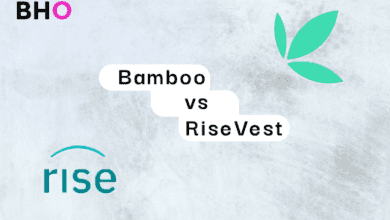The Definition and Advantages of Online Banking

In today’s fast-paced digital world, online banking has become an integral part of our daily lives.
Gone are the days of long queues and paper-based transactions.
With just a few clicks, you can manage your finances conveniently from the comfort of your home or on the go.
In this article, we will explore the definition of online banking, its two types, and its advantages.
What is Online Banking?
Online banking, also known as internet banking or e-banking, refers to the electronic platform that allows customers to conduct various financial transactions through the internet.
This convenient service is typically offered by banks and financial institutions to provide their customers with seamless access to their accounts and banking services without the need to visit a physical branch.
The Two Types of Online Banking
1. Web-based Online Banking
Web-based online banking is the most common type, where customers access their bank’s website through a web browser on their computer or mobile device. They can log in with their credentials to view account details, transfer funds, pay bills, and perform other banking activities.
2. Mobile Banking
Mobile banking is a subset of online banking that specifically caters to users on mobile devices. Banks offer dedicated mobile apps that can be downloaded from app stores, allowing customers to manage their finances using their smartphones or tablets. Mobile banking offers greater flexibility and accessibility, making it increasingly popular among users.
Online Banking vs. Offline Banking
Online banking and offline banking are two distinct approaches to managing financial transactions.
Offline banking, also known as traditional or brick-and-mortar banking, involves visiting a physical bank branch to carry out transactions.
Customers interact with bank tellers or customer service representatives to deposit or withdraw money, inquire about account details, and perform other banking services.
On the other hand, online banking offers a virtual platform where customers can access their accounts and perform transactions over the internet, eliminating the need to visit a physical branch.
The rise of online banking has significantly reduced the reliance on traditional banking methods, making banking more convenient and efficient.
The Meaning and Advantages of Online Banking
The Meaning: The concept of online banking revolves around leveraging technology to streamline banking processes and provide customers with greater control over their finances.
Through secure websites and mobile apps, customers can manage their accounts, transfer funds, pay bills, apply for loans, and even invest in financial products.
Advantages of Online Banking
1. Convenience
One of the primary advantages of online banking is the unparalleled convenience it offers. Customers can access their accounts 24/7, allowing them to conduct transactions and check balances at any time and from any location with an internet connection.
2. Time-saving
Online banking eliminates the need to visit a physical bank branch, saving precious time and effort. Transactions that once took hours can now be completed in minutes.
3. Enhanced Security
Reputed banks employ advanced security measures to protect customer data and transactions, such as encryption, multi-factor authentication, and transaction verification. This ensures a safe and secure banking experience.
4. Access to Financial Information
Online banking provides detailed transaction histories and digital statements, giving customers easy access to their financial information. This helps in better budgeting and financial planning.





